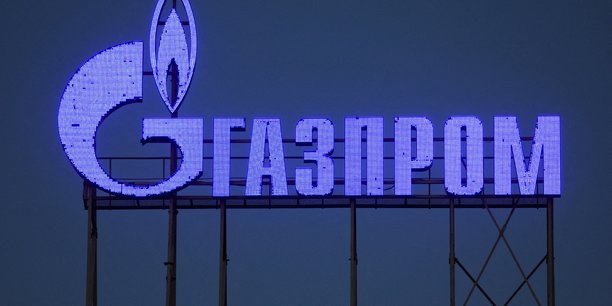While the European Union has deferred any eventuality of a Russian gas embargo to the longer term, it may well have to do without it sooner than it thinks. After Poland and Bulgaria, it is the turn of the Netherlands and Bulgaria to be cut off from Russian exports. Gazprom announced this week that it was stopping its supply, the two states having refused to pay it in rubles as the Kremlin now demands.
As a result, Russian gas exports fell by 27.6% between January and May 2022 compared to this same period in 2021.”Exports to countries far abroad (not including the CIS countries, editor’s note*) amounted to 61 billion cubic meters, or 27.6% (23.2 billion cubic meters) less than for the same period of 2021”said Gazprom announced on Telegram messaging, this Wednesday, ensuring to deliver the gas “in accordance with confirmed orders”. The Russian giant further clarified that “gas exports to China, via the Power of Siberia pipeline, are increasing, under a long-term contract between Gazprom and CNPC”. In other words, the fall in deliveries essentially concerns the European Union.
Not to mention that, in its press release, Gazprom indicated that gas reserves in European underground storage facilities were 20.4 billion cubic meters of gas. In addition, deliveries of Russian gas passing through Ukraine fell after Russian forces entered gas installations in the Lugansk region. “To reach the 90% filling target for storage facilities set by the European Union, companies will have to pump an additional 42 billion cubic meters of gas.the group said.
EU 40% dependent on Russian gas exports
As a reminder, Russian gas represents 40% of EU imports in this area, ie 150 billion m3 per year. It is therefore difficult for the Twenty-Seven to give up on this energy windfall, fearing shortages for next winter. This is particularly true for Germany, largely dependent on Moscow for its gas. All of its gas supply via pipelines comes mainly from Russia, which accounts for more than half of its imports and 50% of homes are heated with gas. In mid-April, five German polling institutes alerted together on the risks of a recession for the country if it interrupted its energy supplies from Russia, in particular gas.
Especially since the EU has finally managed, after a month of negotiations, to agree on an embargo on Russian oil with, however, some concessions granted in particular to Hungary. A few weeks earlier, the Member States had also decided on an embargo on Russian coal which will come into force at the beginning of August. It is therefore difficult for the Twenty-Seven to immediately cut off a new energy resource, the time to find a solution to compensate for the Russian absence like Germany, which is turning in particular to Africa. Berlin is committed to renewable energy or energy storage projects in Senegal, and has started talks regarding gas, Chancellor Olaf Scholz said on May 22.
(With AFP)
*The Commonwealth of Independent States (CIS) was created in December 1991 by eleven countries of the former USSR: Armenia, Azerbaijan, Belarus, Kazakhstan, Kyrgyzstan, Moldova, Uzbekistan, Russia, Tajikistan, Turkmenistan, Ukraine. It was joined in December 1993 by Georgia. Only the Baltic states, also former Soviet republics, have not joined the CIS but are members of the EU.
——————-
Russia takes steps to ‘minimize’ impact of embargo on its oil
It is a sanction that could have serious consequences for Moscow. Monday evening, the Twenty-Seven finally managed to agree on an embargo on Russian oil, conceding however, to Hungary in particular, certain exemptions. The European Union is therefore going to drastically reduce its imports by the end of the year, thus hoping to deprive Russia of an important source of income to finance its offensive in Ukraine.
But the Kremlin showed confidence on Wednesday in its ability to “minimize” the impact of this new measure decided by the Member States within the framework of a sixth package of sanctions against Moscow. “These sanctions are going to have a negative impact for Europe, for us and for the whole world energy market. But there is a reorientation (of the Russian economy) which will allow us to minimize the negative consequences “Russian presidential spokesman Dmitry Peskov told reporters.
Russia has so far always put into perspective the scope of the economic sanctions taken since the beginning of the intervention in Ukraine by Western countries. Especially since Moscow can still count on its gas manna, on which the Europeans are dependent. The effect of the sanctions is beginning to be felt, however, with an acceleration in inflation in particular, and many economists believe that the situation will worsen in the coming months.
–


